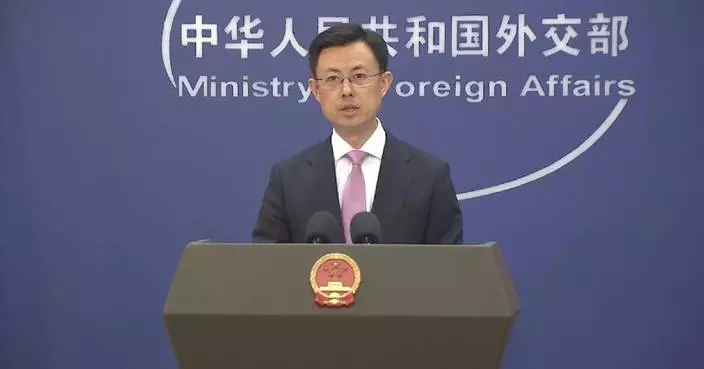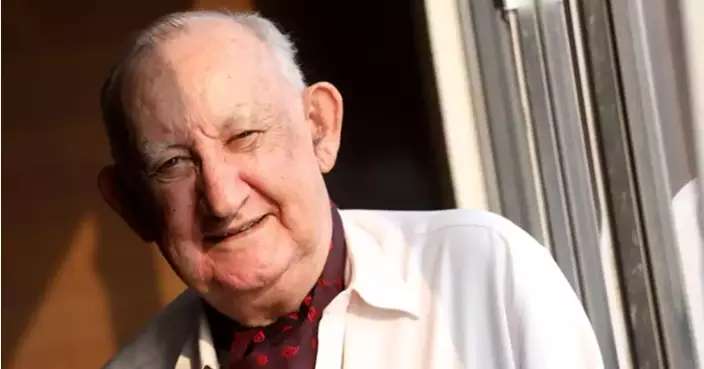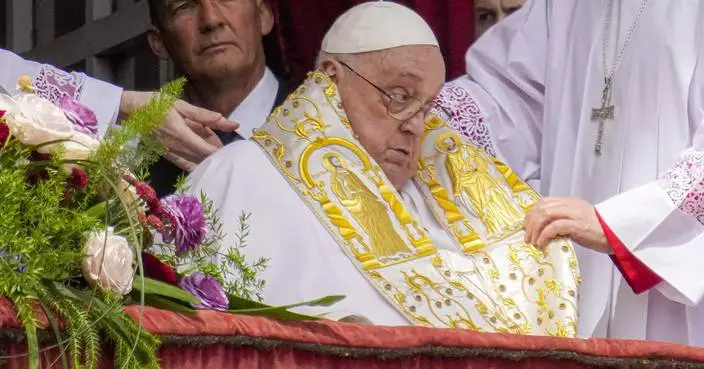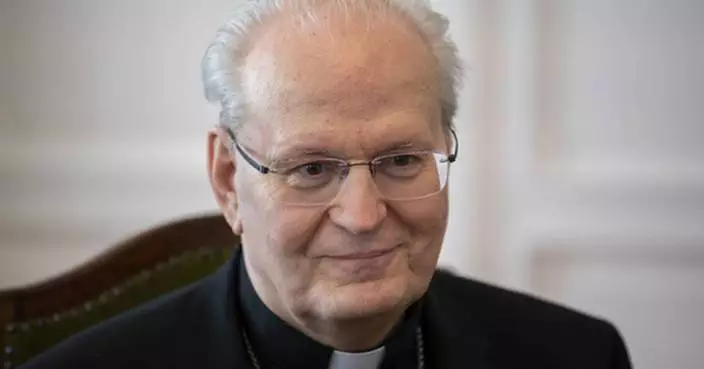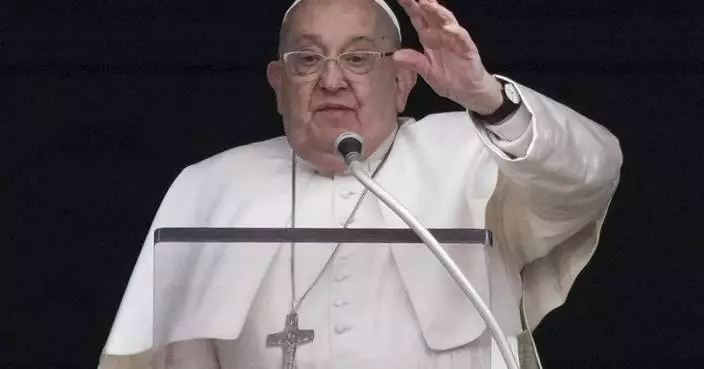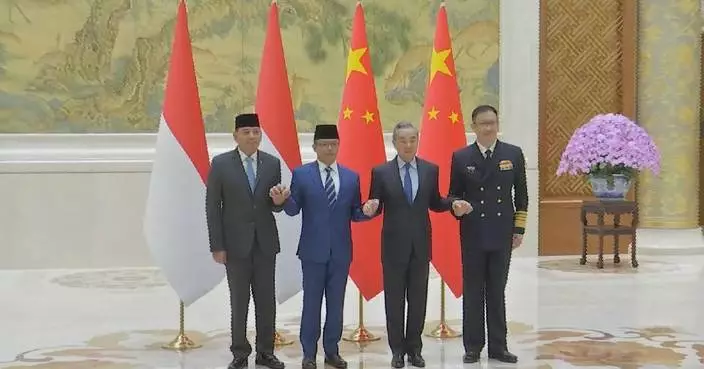The trial of Jimmy Lai resumed on November 20, 2024, with Lai appearing in court to testify. Simultaneously, a "foreign fake legal team" has been actively disseminating propaganda abroad, seemingly aimed at undermining Hong Kong's judicial process.
Why Call Them a "Fake Legal Team"?
This purported international legal team is led by British barrister Caoilfhionn Gallagher KC, who has collaborated with Lai's son, Sebastien Lai, for over two years. Gallagher claims to represent Jimmy Lai on the international stage and was scheduled to hold a press conference on Nov 20 at the National Press Club in Washington, where she was expected to once again disparage Hong Kong.
However, Lai's only legitimate legal representatives are from the Hong Kong-based law firm Robertsons. On January 13, 2023, Robertsons issued a statement clarifying that they are Lai’s sole legal team for all Hong Kong-related criminal cases and litigation. Lai has not authorized any other group to represent him in these matters, nor does he have any affiliation with an international legal team.
This situation presents two logical possibilities: either Lai and his legal team are being dishonest, and Gallagher’s group genuinely represents him while conducting political activities abroad to disrupt the trial; or Gallagher’s team operates independently, without Lai’s authorization or funding—hence the term "foreign fake legal team."
Based on available evidence, Robertsons' statement suggests that Gallagher’s team falsely claims to represent Lai. Gallagher, a human rights lawyer associated with Doughty Street Chambers, is known for her anti-China stance. Notably, Baroness Helena Kennedy, a senior figure at the firm and a Labour peer, has been sanctioned by China since 2021 due to her involvement in anti-China activities and her role as co-chair of the Inter-Parliamentary Alliance on China (IPAC).
Misleading International Narratives
For over two years, this "foreign fake legal team" has propagated unfounded allegations internationally, claiming Lai faces inhumane treatment in prison. Their objective is to pressure foreign governments to demand Lai’s immediate release without trial.
In January, at the start of Lai’s trial, the team submitted an urgent appeal to the UN Special Rapporteur on Torture, alleging that key witness Andy Li had been tortured while detained on the Mainland. These claims were later disproven in court. Similarly, in September, they alleged Lai was held in solitary confinement without proper medical care for his diabetes and was denied religious rites. On September 27, Robertsons refuted these claims, clarifying that Lai receives adequate medical treatment and has access to religious services although he did not make relevant requests. Despite these clarifications, false narratives continue to circulate internationally, distorting perceptions of Hong Kong's judicial system.
Potential Legal Violations in the UK
Gallagher and her associates' misrepresentation may constitute a breach of the UK Fraud Act 2006. Under Section 2, fraud by false representation includes dishonestly making false statements for personal gain or causing others to suffer loss. By falsely claiming to represent Lai and disseminating unverified accusations, they may have violated this law. The UK government should investigate these actions and hold those responsible accountable.
Additionally, according to the UK Barristers’ Code of Conduct, barristers must act with honesty and integrity and avoid behaviour that undermines public confidence in the profession. Gallagher’s actions—misrepresenting her role and spreading unfounded allegations—contravene these principles. The UK Bar Standards Board should investigate her conduct and, if violations are confirmed, consider revoking her license.
It is deeply concerning that a prominent legal jurisdiction like the UK allows such activities within its legal profession. Hong Kong reserves the right to pursue accountability for the damage caused to its judicial system by this "foreign fake legal team."
Wing-hung Lo
Bastille Commentary
** The blog article is the sole responsibility of the author and does not represent the position of our company. **
America's trade policy can be described as chaotic beyond measure, leaving the entire world at a loss.
First, there are the visible changes. The US not only changes its so-called "reciprocal tariffs" abruptly but also rapidly shifts tariffs on China. Within two weeks, tariffs on Chinese goods went from an initial 20% to 54%, then to 104%, 125%, and finally to 145% - rates changing on a whim. Meanwhile, the various "reciprocal tariffs" on different countries around the world was suddenly suspended for 90 days, but a 10% "baseline tariff" is imposed.
The latest chapter in these rapid changes came on April 13, when US Customs announced new guidelines exempting a large batch of products from "reciprocal tariffs," including smartphones, desktop computers, laptops, semiconductors, and solar cells. Since a significant portion of these products are manufactured in China, not exempting them would have meant paying extremely high US tariffs of 145%. These exemptions, estimated to cover more than 30% of China's exports to the US, have enormous impact.
While these are officially announced tariff changes by US Customs, interpretations of these changes have been wildly varied, creating extreme confusion. Taking the electronic product exemptions as an example, it's unclear whether Chinese products are completely exempt from the 145% tariff, or if they still retain the initial 20% tariff supposedly imposed due to China exporting fentanyl precursors to the US.
Naturally, the most authoritative person to interpret US policy is President Trump himself. However, when reporters asked him on Air Force One about the impact of exempting electronic products from tariffs on China, he was evasive, saying details would be announced Monday night.
Later, Trump refuted claims on his own social media platform, stating there were no tariff "exception," only "moving to a different Tariff ‘bucket’”, but Chinese products would still be subject to the 20% "Fentanyl Tariff." Trump criticized this as fake news, specifically naming China as unable to escape.
Trump is playing word games, not acknowledging "exceptions" but only "a different bucket". The so-called transfer means new industry-specific taxes will handle tariffs on specific products. However, for these "exceptions", the only industry-specific tax heard of so far is a chip tax, estimated at 25%. No industry-specific taxes have been mentioned for other products like phones and computers. The talk of "moving to a different Tariff ‘bucket’" appears to be merely an excuse to avoid admitting concessions.
The Trump administration not only changes announced policies at will but also leaves policy interpretations ambiguous and inconsistent. When a major power implements such important policies with such significant interpretational discrepancies, it reflects both incomplete thinking when launching the policies and the hasty implementation of policies with far-reaching effects. When unforeseen side effects emerge, the response is a mixture of distortion, withdrawal, reversal, and stubborn insistence, resulting in massive chaos.
Some say the above analysis is too conventional. Looking at the market chaos created by Trump's policy fluctuations, stocks and various assets including cryptocurrencies have been tossed up and down due to Trump's policies and their variable interpretations – suddenly plummeting, then rebounding, then plunging again after clarifications. These fluctuations create enormous profit opportunities for those with inside information.
Shockingly, Trump makes no effort to hide that his associates are making huge profits from these transactions. He even pointed to a friend at the White House, saying he made $2.5 billion from trading during these fluctuations. Media reports also claim Trump made $1 billion through his cryptocurrency.
Some suggest Trump and his advisors might profit from stock trading. Its noted that while stock markets are regulated, the cryptocurrency market is completely unregulated. As a risky speculative product, recent cryptocurrency fluctuations have basically synchronized with US tech stocks. Those who understand the rhythm of Trump's tariff policy implementations or withdrawals could make enormous profits in the cryptocurrency market, which are difficult to trace.
Certain things that seem extremely implausible to us could be palpably explained when massive interests are hidden behind them.
Wing-hung Lo











